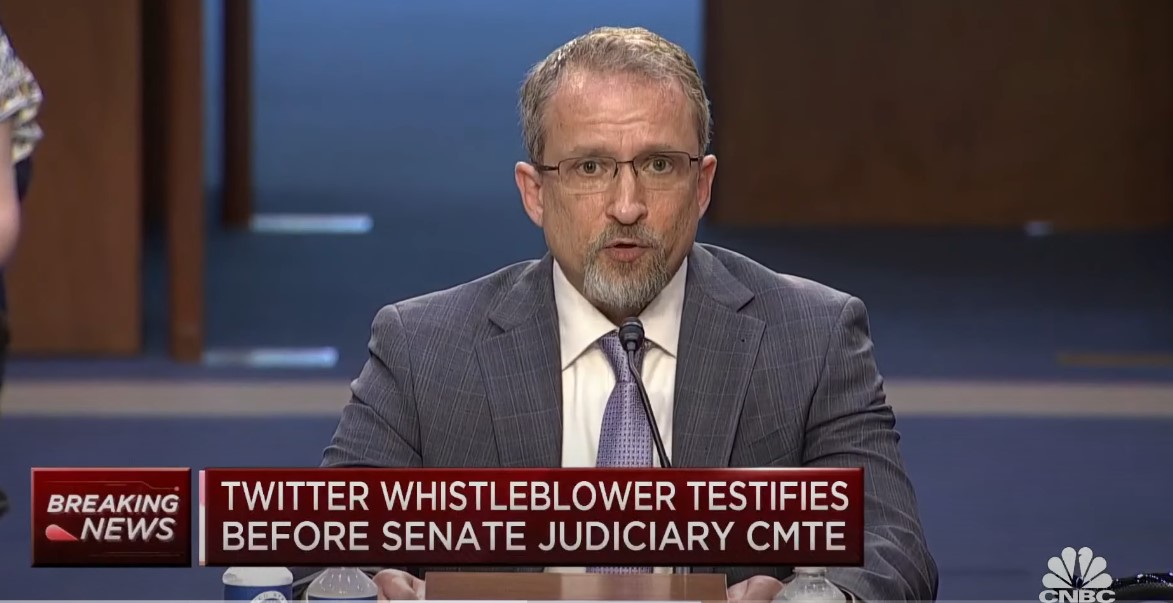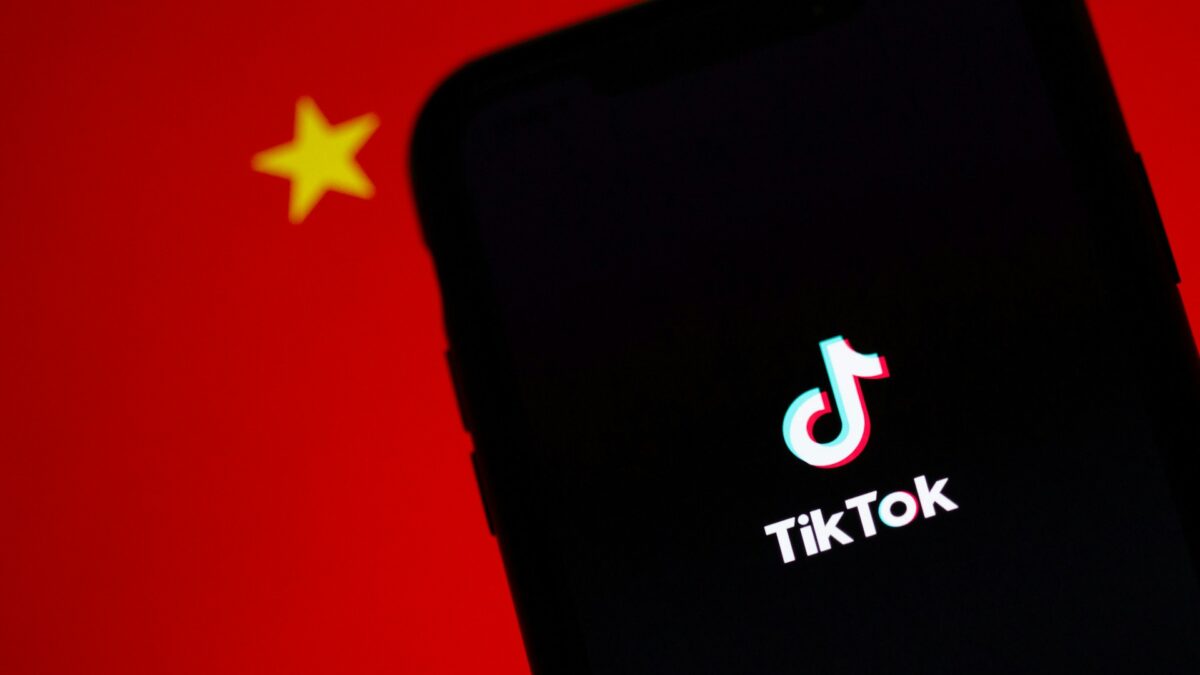A former Twitter executive testified to the U.S. Congress on Tuesday regarding concerns about Twitter’s data security issues. His testimony and the following Q&A with senators revealed many problems relating to the safety and security of user data, but the most disturbing revelation was Twitter’s relationship with China.
Peiter Zatko, the former head of security at Twitter, was fired by the company in January of this year. Zatko filed a whistleblower complaint with the Securities and Exchange Commission (SEC) last month, alleging the company “prioritized profits over security” and exposed Twitter users worldwide to data privacy and security risks. Zatko especially raised concern about the company’s cozy relationship with foreign governments, such as China.
Although the Chinese government officially bans Twitter, the company, according to Zatko, has been eager to kowtow to the Chinese Communist Party (CCP) for the sake of the company’s bottom line. Twitter’s cooperation with the Chinese government is two-fold. One aspect is user data security. Zatko disclosed that the FBI notified Twitter that at least one Chinese agent was working in the company. It was not clear what the company did about this.
Zatko said he and some other Twitter employees had voiced their concerns to senior executives about the possibility that the CCP would be able to access sensitive Twitter user data. The CCP could use this information to monitor dissidents inside China and overseas critics, quickly locate their whereabouts and impose harm on them.
According to the Wall Street Journal, Chinese authorities imprisoned more than 50 Chinese citizens between 2019 and 2021 for using Twitter and other foreign platforms to criticize Beijing’s policy. For example, one Chinese user with fewer than 300 followers was sentenced to jail for nine months after complaining on Twitter about Beijing’s mishandling of Covid-19.
Even for overseas Beijing critics, threats to our safety are real. For instance, the United States Department of Justice (DOJ) unveiled three such cases early this year, accusing five individuals, including Americans and undercover agents sent from China, of “stalking, harassing, and spying on” Chinese dissidents in the United States on behalf of China’s Ministry of State Security (MSS). China also boasted that it had brought more than 8,000 overseas Chinese “criminals” back to China under its Operation Fox Hunt and Operation Sky Net programs, bypassing local jurisdictions.
In 2011, Twitter settled with the Federal Trade Commission (FTC) related to the company’s handling of user data. According to Zatko, the company Twitter has made “little meaningful progress on basic security, integrity and privacy systems” since then. As a Twitter user and vocal critic of the CCP, I entrusted my data to the company. It is unsettling to learn from the whistleblower’s complaint how little the company values my privacy and safety.
Zatko’s congressional testimony on Tuesday also referenced the latest report from Reuters, which uncovered another disturbing aspect of Twitter’s cozy relationship with the CCP. Twitter’s ad revenue from the China region “has seen an 800-fold improvement since 2014,” and China is “the platform’s fastest-growing overseas ad market and one of its largest non-U.S. revenue sources.” How did this happen?
It turned out that although the Chinese government has banned its citizens from accessing Twitter, it recognized that western social media could play an essential role in the CCP’s overseas influence campaigns. Chinese government agencies, state media, and their representatives (including CCP members) have opened Twitter accounts, purchased advertisements on the platform, and used Twitter to spread Beijing’s propaganda and misinformation in efforts to shape public opinion overseas. Driven to grow its bottom line, Twitter’s China sales team reportedly aggressively courted local Chinese governments.
In his whistleblower complaint, Zatko alleged that “Twitter executives knew that accepting Chinese money risked endangering users in China … but Twitter was too dependent upon the revenue stream at this point to do anything other than attempt to increase it.”
Chinese government agencies and their representatives reportedly used the purse’s power to demand blue checks on their accounts, lending them credibility for unsuspected users worldwide. While Twitter often violates American citizens’ constitutionally protected right to free speech by temporarily or permanently suspending accounts in the name of combating misinformation and disinformation, it rarely applies such censorship to Chinese government accounts.
For example, former China’s ambassador to the United States, Cui Tian Kai, denied Beijing’s suppression of the pro-democracy movement in Hong Kong and human rights abuses against Uyghur Muslims in Xinjiang on Twitter. Zhao Lijian, China’s Foreign Ministry spokesperson and a well-known “wolf diplomat,” spread a conspiracy theory of Covid-19’s origin on Twitter and accused the U.S. military of bringing the coronavirus to China.
Even though there are mountains of evidence suggesting both Cui’s and Zhao’s tweets as disinformation, their tweets remain intact, and their accounts were never suspended. While demonstrating great deference to Chinese government officials, Twitter has suspended, even permanently banned, many Americans for tweeting “Men aren’t women.”
Twitter is currently fighting a legal battle with Elon Musk, CEO of Tesla. Musk made an offer to purchase Twitter but backed out of the deal, alleging the company misrepresented its business, among other things. Zatko’s whistleblower complaint will no doubt strengthen Musk’s case.
For many Twitter users worldwide, Zatko did a public service by revealing the company’s many problems, including its relationship with the Chinese government. The whistleblower complaint also exposed Twitter’s double standards and hypocrisy regarding free speech. It is time that all Twitter users think long and hard about whether we should continue to support this social media platform and let it profit from our activities and information while risking our privacy and safety.









